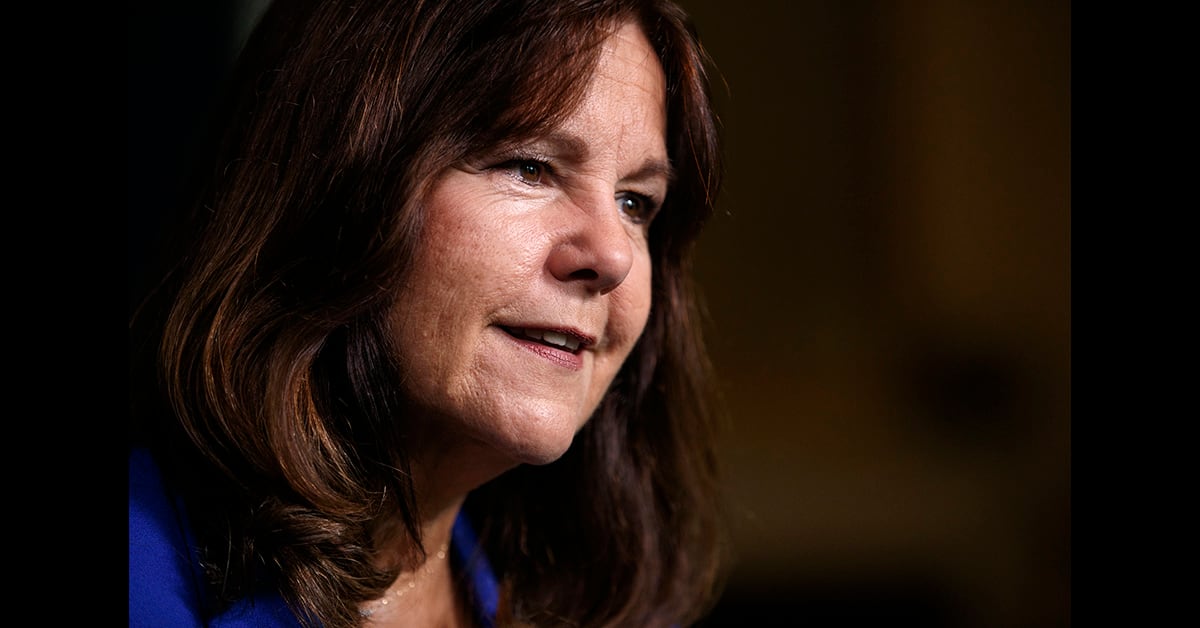The Trump administration feels it’s “imperative” to support military spouses and children, second lady Karen Pence told an audience filled with Army spouses and leaders.
“We know military life is not easy,” she said.
Pence recently launched a campaign to “elevate and encourage military spouses,” and highlight the resources they can turn to for help, she said, speaking Tuesday to a family forum at the 2018 Association of the U.S. Army annual meeting.
“We know employment issues are one of the biggest challenges military spouses face, especially for those with jobs that require licensure, such as teachers, nurses, hair stylists and doctors,” she said. Defense officials estimate that about 37 percent of spouses are working in fields that require a license, and moving means often a time-consuming, expensive and frustrating process of getting a license to be able to work in their field.
“This is the thing we heard the most, the number one issue,” Pence said. She said she held “listening sessions” with spouses around the country and in some overseas locations, to determine what spouses needed before launching the campaign. The sessions included men and women of all ranks and branches, including reserve components — without base commander spouses present, so that spouses felt free to speak. Other issues brought up included the availability of child care, and problems in getting clearances to be able to work on bases overseas.
President Trump, in an executive order, has asked federal agencies to explore options for helping military spouses, but also wants them to hire military spouses. They met a spouse in Alaska who teleworks for the White House, keeping her job after she moved to Alaska, Pence said in a later interview.
Part of her effort involves making spouses more aware of the resources that are available to them. While they may not need the particular resources now, they will remember later when they do need them, she said.
But she also wants to “take every opportunity to elevate the military spouse,” so that people in civilian communities are aware of the frequent moves and other aspects of military life that can result in a financial burden when the spouse can’t find a job for a few months or a year.
“If we can make people aware so that they can reach out to military spouses, that’s part of what we want to do,” she said.
A lot of businesses and agencies know that she’s serious about this initiative, she said.
“Now that I’m second lady, people take my phone call. This is an opportunity for us to get people together. We’re finding we can hardly keep up with the people who want to work with us.
“We see ourselves as a clearinghouse, a place where people can come together and brainstorm.”
She has met with defense officials, and with others, including researchers who have looked at how states implement changes they have made to ease licensing requirements for spouses.
She gives credit to the Obama administration for bringing a lot of attention to issues of spouse employment and licensing. “We want to carry that ball. Now that people are more aware of this, we want to see what we can do to encourage businesses” to hire spouses, she said.
Pence said she first became aware of the issues surrounding military spouse employment when she was working as a teacher in the Washington area for 12 years while her husband was serving in Congress. Many of her colleagues were military spouses.
“I started to hear some of their issues and some of their adventures in the teachers' lounge, and became more aware of what a military life is like.”
After her husband became vice president, she said, a number veterans’ organizations reached out to her.
“We love our veterans and have been very active in making our veterans aware of art therapy, which is so successful with [post traumatic stress disorder], so we felt like for veterans, art therapy was the way we wanted to go,” she said.
“I didn’t see a lot of groups elevating the military spouse,” she said. “We started hearing about readiness issues," because spouses may not support their service member’s continued service because of the difficulties. “We felt like the way we could support our military was by supporting the spouses.”
Pence told the Army spouses they are “incredible, competent, well-educated, flexible, hard-working and tremendous assets to our nation and communities.”
Karen has covered military families, quality of life and consumer issues for Military Times for more than 30 years, and is co-author of a chapter on media coverage of military families in the book "A Battle Plan for Supporting Military Families." She previously worked for newspapers in Guam, Norfolk, Jacksonville, Fla., and Athens, Ga.





